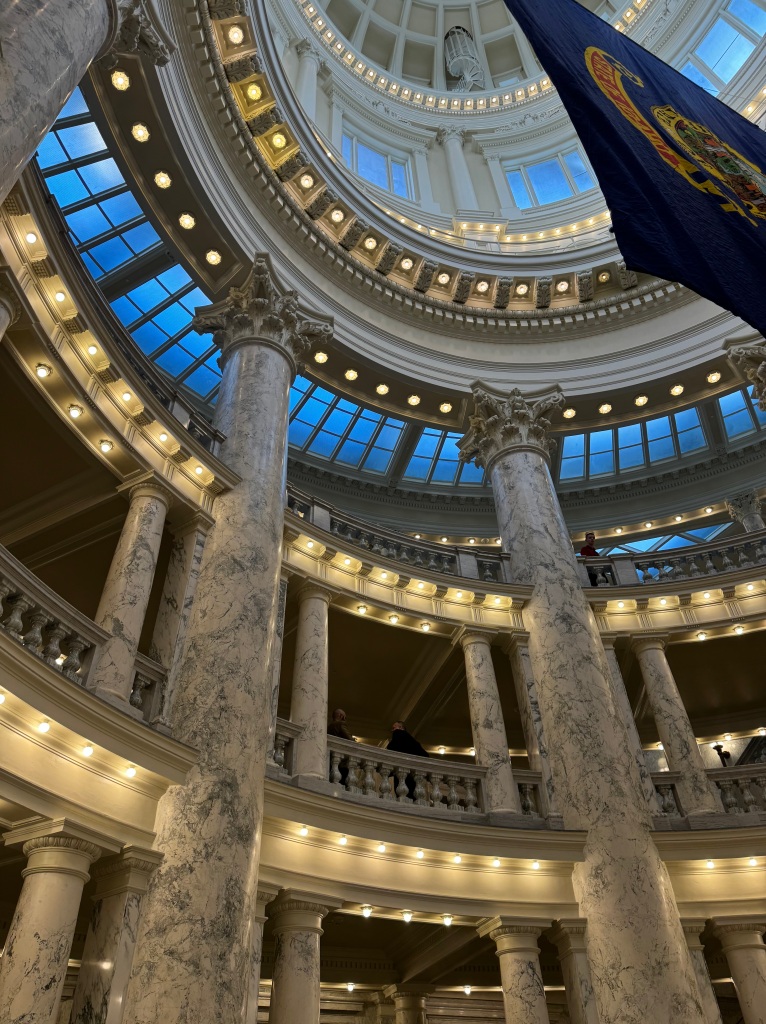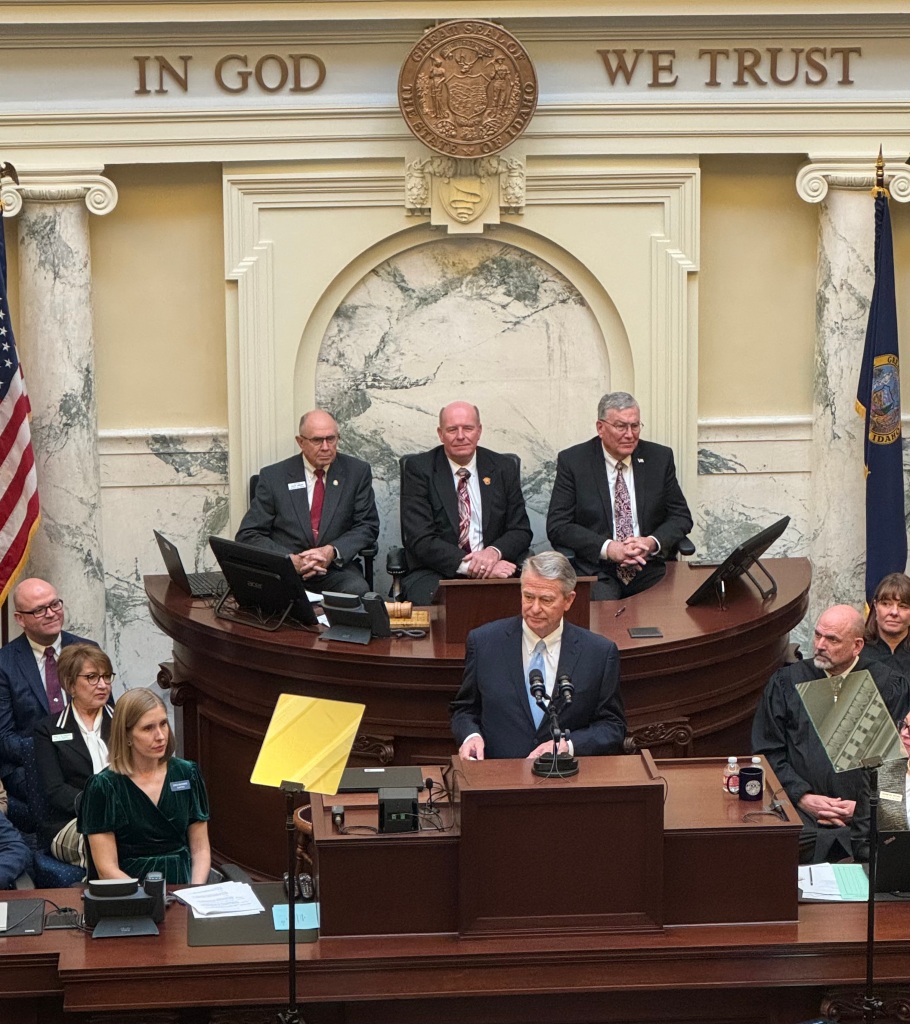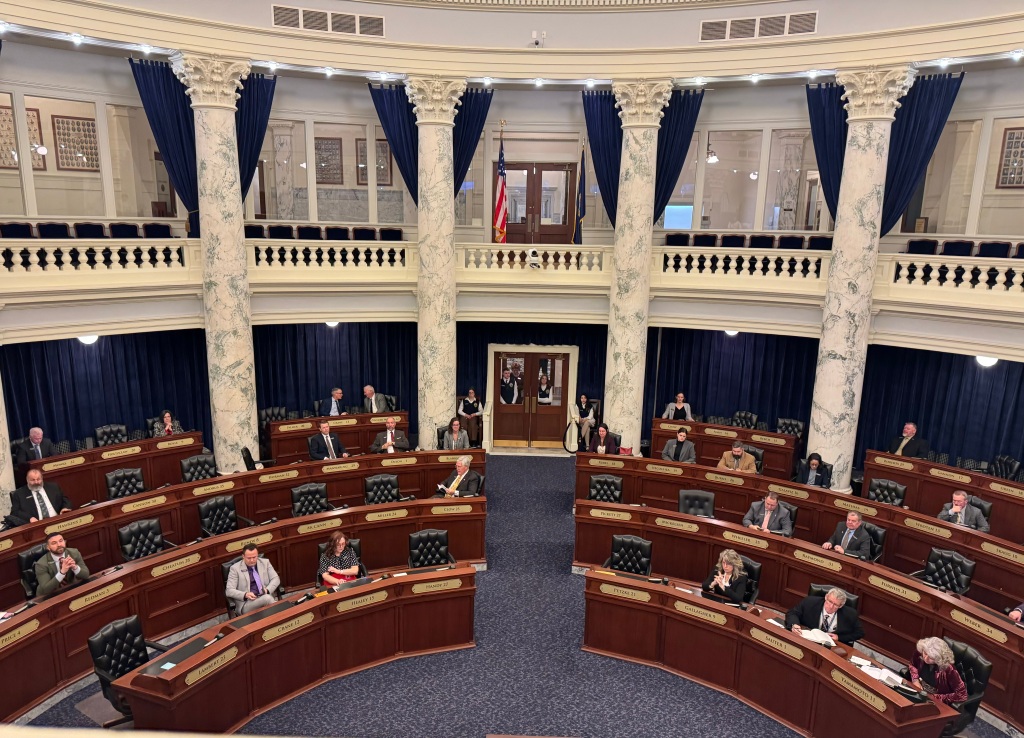Staff report
The Idaho Legislature adjourned Sine Die on April 10.
The Senate adjourned Sine Die at 2:42 P.M.
The House adjourned Sine Die at 2:49 P.M.

(The Idaho State Capitol, January 9, 2024. Photo by Sophie Spanbauer)
Governor Brad Little thanked his legislative partners from across the political spectrum for their support of 99% of his IDAHO WORKS plan.
The Legislature passed Governor Little’s school facilities and tax relief bill while fully funding LAUNCH, the program designed to help graduating high school seniors stay in Idaho to fill jobs in high demand.
“Once again, we finished a legislative session marked by milestone achievements that will greatly improve the lives of Idahoans for generations to come,” Gov. Little said. “Idaho is one of the fastest-growing states in the nation, with one of the strongest economies anywhere.”
Idaho Gov. Brad Little signed HB 710, the bill on libraries and prohibited materials.
Little vetoed SB 1323, relative to public utilities. Little says the bill “would create a carveout for water companies to operate in Idaho as a monopoly.”
Little vetoed SB 1314, on the state investing in silver and gold. Little said the bill failed “to take into account the many additional costs that will be borne by taxpayers for the storage, safeguard, and purchase of commodities such as gold or silver.”
Gov. Little allowed two bills— HB 726, administration appropriation; and HB 770, transportation funding— become law without his signature.
Among the bills that didn’t pass– SB 1416, on emergency medical services in the state. It stalled in the House State Affairs Committee after passing in the Senate.
Democrats have been critical of the session, on issues including abortion, libraries, and summer lunches. Speaking to an Idaho Democratic Party event in Moscow via video conference on April 10, Rep. Lauren Necochea urged action. “Our little caucus does make a difference, every day when we’re in there, and we can make more of a difference…if there are more of us,” she said.

(Gov. Little’s State of the State and Budget Address, January 8, 2024. Photo by Sophie Spanbauer)
In reviewing the session, Governor Little highlighted several initiatives, including:
- House Bill 521, which increases funding by a net of $1.5 billion over the next 10 years to address unmet capital construction needs in school districts and improve student achievement.
- $150 million in new property tax relief.
- $200 million to fund repairs and improvements on local bridges.
- $302.8 million in ongoing transportation funding to cover the state’s known deferred maintenance and safety gaps.
- $30 million to ensure a stable water supply.
- $20 million in additional funding for the state to manage and expand access to Idaho’s great outdoors.
- $6.6 million to continue the fight against invasive quagga mussels.

(The Idaho House of Representatives. January 12, 2024. Photo by Sophie Spanbauer)
“We responsibly invested in school facilities, workforce, roads, bridges, water, and other infrastructure while delivering even more tax relief for our state’s hardworking families and businesses,” Little said. “Our state budget is structurally sound and we are more than ready for anything that comes our way.”
Posted April 14, 2024
-END-

















